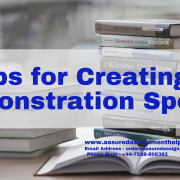What is a needs assessment? – slide 2
A needs assessment is systematic procedure which is used to evaluate the health needs of a certain population, the contributing factors too these needs and what resources are required to fulfill these needs in order to improve the populations health (Wright et al, 1998; Cavanagh & Chadwick, 2005).
Through our needs assessment we aim to engage with a population within our local community who have not been specifically been engaged with before (Wright et al, 1998; Cavanagh & Chadwick, 2005). The needs assessment will allow us to address the health needs of this population and create an effective health intervention, in hopes of improving the health and wellbeing of all, as individuals and as a collective by reducing any inequalities and eliminating issues (Wright et al, 1998; Cavanagh & Chadwick, 2005).
Although we do acknowledge the challenges of a health needs assessment including, getting all parties such as stakeholders, sponsors, the population itself on board with the assessment and eventual intervention and actually collecting the data and translating that into a useful intervention, the potential benefits of, strengthening communities, equipping the community with the tools to acknowledge and improve their own health and reducing health inequalities, outweigh these challenges.
The community – slide 3
We will be engaging Wirth the Howick Pakuranga Hockey club, specifically too the Premier Women’s team, which I became a part of earlier this year (HPHC, 2022). HPHC was formed in 1947 which began with two 4 th division men’s social teams and no women’s teams. In the early 1980’s is when women from Mt Wellington joined the club and the first women’s team was created. Better players and coaches were attracted to the club by word of mouth (HPHC, 2022). In the Mid 1980’s the juniors division of the club was formed allowing for players to develop and grow right from beginners. Since then, the club has become the biggest in New Zealand with over 200 junior teams, 6 senior women’s teams and 9 senior men’s teams (HPHC, 2022).
Upon getting selected for the team, I began to notice a lack of knowledge among players on how to engage with and better their own health and the team’s health which I believe stems from an individualistic view on health and may be creating some inequalities within the team. After applying what I have learnt in this course, I have also realised that there is a lack of engagement with Te Tiriti and the community development principles in this team which is why we decided that my team would be the ideal candidates to do a needs assessment on and create an appropriate health intervention.
Data analysis – slide 7
After receiving all of the answers to the questionnaires, we went through each individual question and compared each of the players answer to that specific question which highlighted similar answers between the players, trends in the data and what changes they would like to see to improve the health outcomes of the team. I will briefly summarise the data so we can gage these trends. Most of the players believe in the Māori perspective of health: haurora views health as relating to four dimensions, physical, spiritual, social and mental and emotional which all support each other so if one is damaged, it impacts the others. All agree that the social dimension of health is strong,
everyone is close and connected on and off the field. In terms of physical health, everyone is fit and strong which is supported by a balanced diet and plenty of water intake. However, the mental and emotional side is lacking. Luckily majority of the players do have good individual mental and emotional wellbeing but nothing much is being done to support this aspect of health as a collective. Similarly, the spiritual dimension is also lacking in terms of knowledge and implementation. This seems to Participation at trainings, games and even during team discussions has declined in recent weeks and this is affecting the principle of empowerment as some players feel as though they are losing control over actions and decisions which impact the team’s health, success and abilities. However, the players do believe that the team and club employ a player-centred approach. The players are at the forefront of decision-making and are given the opportunity to share their opinions which are valued.
They do believe everyone’s rights and interests are being tended too and equally valued. Everyone has a voice or an opportunity to speak but perhaps there needs to be something done to get the shyer and quieter players more involved in communicating and voicing their opinion.
There seems to be a lack of knowledge around the impact which Te Tiriti has on health and how it can be implemented to improve health. Although everyone agrees that the club is inclusive regardless of all cultures, religions, ethnic groups, sex, disabilities etc the team is predominantly NZ/European and lacks others from these different cultures or ethnic groups. As Māori are the indigenous people of NZ the players believe maybe more can be done from those higher up at the club to gain knowledge of Māori and Te Tiriti. This would allow for the club to reach out to Māori in some way to get them to join the club and ensure that they tend to the needs of Māori with the new knowledge of Te Tiriti.
The acronym SWOT describes strengths, weaknesses, opportunities and threat and is a great way to analyse the data from the questionnaire.
In terms of strengths – The strengths in the team are definitely the level of their social connection, which may become helpful during the intervention as we try to enhance other aspects of health in the team, which will definitely require communication, respect for each other and trust of which they already have a solid foundation of.
In terms of weaknesses – The spiritual and mental and emotional dimensions of health are definitely a weakness which is impacting the overall haurora of the team. Similarly, the lack of participation seems to have an impact on empowerment, team performance but also relationships between players. Engagement with Te Tiriti is also a weakness which can easily be improved by gaining knowledge of it and how to implement it within the club and the individual teams also.
In terms of opportunism – Fixing issues related to the community development principles within the intervention will allow the team to engage with their health on a deeper level. Through this, we are hoping to see improvements in the mental and emotional and spiritual dimensions of health to create improve health outcomes and create a better team.
In terms of threats – According to the haurora view, if we do not intervene quickly, we could see the physical and social dimensions of the team crumble due to the weakness in the mental and emotional and spiritual dimensions. This could drastically affect the success of the team and how they play, their willingness to participate in the intervention and consequently, their health as a collective and as individuals.
What work has previously been done in this community? What happened? – slide 8
Because this community view health as those for dimensions we identified earlier, we will continue looking at health from that haurora Māori perspective and analyse what has previously been done in this community in relation to those four dimensions.
In terms of the physical health, this dimension is continuously seen too. The hockey trainings and games are an intense form of fitness and the players typically do specific hockey fitness all together during their Tuesday training session and engage in other forms of weight and cardio training on most days of the week. The players also frequently discuss their workout routines and give each other advice to make sure they’re all training properly. There is also a large emphasis on rest days, taking it easy when you are not feeling 100%, eating enough to fuel all of the exercise, eating a balanced diet and drinking lots of water also.
In terms of spiritual health, a values session was half at the beginning of the season where players were able to openly discuss their opinions regarding the values, ethics and expectations they have for the season. All of the opinions were boiled down to a few points including commitment, respect for each other and the Coach and putting in 100%. Unfortunately, this values session has been forgotten by many of the players and they are not doing the things they said they were going to do during this session, which is really weakening that spiritual dimension of health.
In terms of mental health, during this values session the coach made it obvious that he cared for a respected all of the players and was available whenever they need someone to talk too or confide it whether it be hockey related or not. The players all agreed that was very nice to know but nothing else is being done in the team or by the club to tend to or even acknowledge mental/emotional health which is not ideal in such a high-stress environment.
In terms of social health, the players have done a couple of team bonding which they believe have really built up the relationships between the players in the team. They plan on doing more of these to ensure that the social dimension of health remains strong despite a lack of commitment from some players. All of the players also agree that they have a good relationship with the coach and other officials within the club.
Prepare draft report and proposal – slide 12
The draft report included the data we gathered from the questionnaires as well as the breakdown of this including the trends between players and a summary of these trends which I discussed in a previous slide. The draft report also included the team’s strengths, weakness, opportunities and threats we decided on based on the questionnaire answers which highlighted the needs of this community.
We believe the main needs of this community is to:
– Enhance both the mental/emotional and spiritual dimension of health to ensure that all four dimensions are strong and equally supporting each other. We believe that doing this will help the team better engage with the principles of community development; participation and empowerment.
We do believe that those higher up such as the club president and chairpersons at HPHC also need too
– Learn about Te Tiriti and its relevance to health and hockey whilst also understanding how to implement it to encourage Māori hockey players to join the club and support their needs when they do.
We hope then that this learning can be passed down into all teams, not just the Premier Women’s team, to ensure that the club as a whole is more inclusive and accommodating to the indigenous people of New Zealand
The intervention proposal is as follows:
– Firstly, we would like to get the players to attend a mental/emotional and/or a spiritual health workshop, through wellbeingworkshop.co.nz, which, will equip the players with the knowledge on how to implement these dimensions of health into the team and their own lives more effectively whilst also giving them the tools to troubleshoot if necessary.
– After the workshop we would like to create a buddy system who will discuss at every training/game to discuss all of the dimensions of health firstly, with a particular emphasis on applying what was learnt in the workshop to enhance the mental/emotional and spiritual aspect of health). We hope that the buddy system will keep each other accountable in terms of attendance and participation in training which was a problem highlighted by the players.
We also hope that it will give the shyer players a chance to speak on more of a private level. We also recommend that the buddies are ‘bigs and littles’ or consist of two people who aren’t very close as this will continue building the social dimension of the team through enhancing different relationships.
– In terms of Te Tiriti, we would love to run a Māori health seminar for the club presidents, faciliatory, coaches and anyone else who wanted to participate, which would also include a basic introduction to Te Reo and the articles of Te Tiriti. This may either been done through haurora.nz or the Auckland council OR we have considered asking a lecturer from the AUT, such as Heather Came-Friar, to run the class. This would be most beneficial as Heather’s
knowledge of Te Tiriti and Māori culture is extensions plus it would help the club save money and resources. Following this seminar, we hope that Māori knowledge can be passed from coaches to the players.
– We hope this seminar will encourage the club to reach out to Māori most through social media platforms or visiting local Maraes to encourage Māori to come and play for HPHC. Perhaps, HPHC can offer a deal for new Māori players such as 20% of their fees or provide a one-day tournament consisting of a Māori team, Pasifika team and so on where new or experienced hockey players can all come together and play each other. Perhaps with a day full on fun and food would encourage new players of all cultural and ethnic backgrounds to join the club.
– We also hope that this may encourage Māori with hockey background to join the club as chair people or even coaches and umpires.










